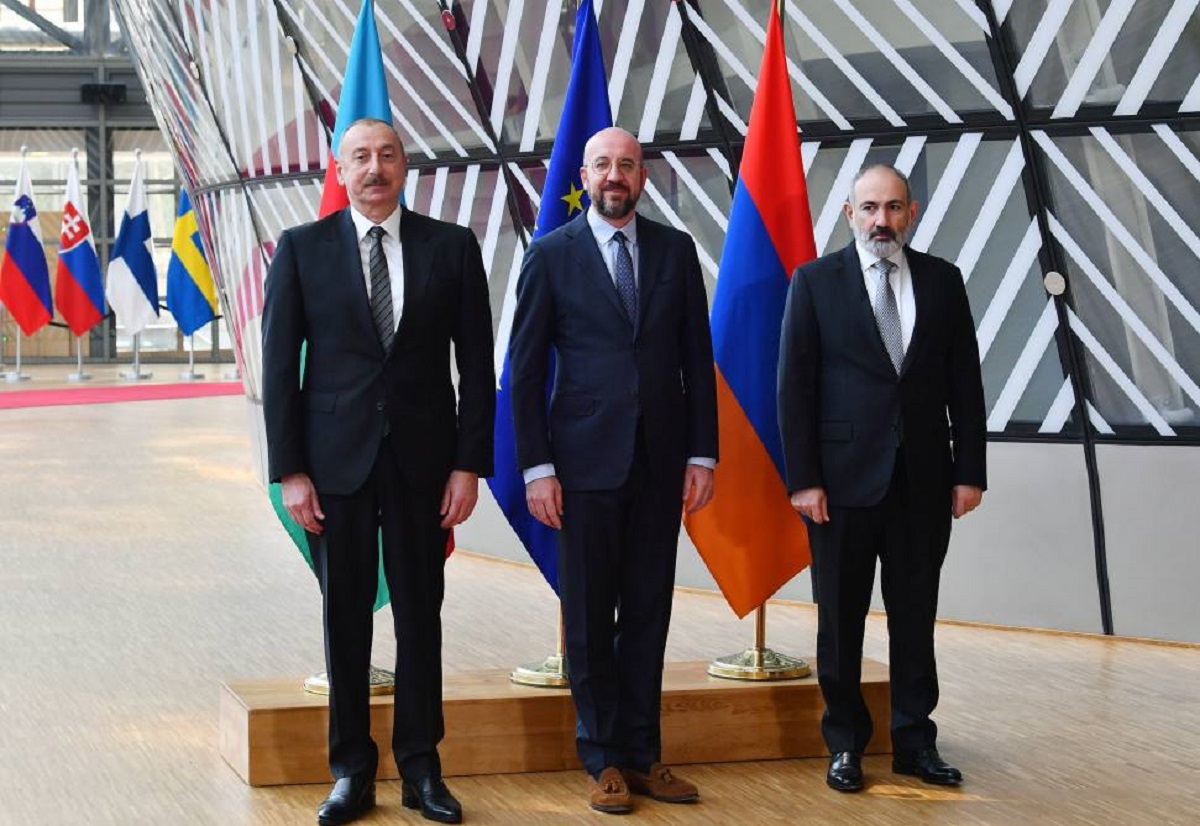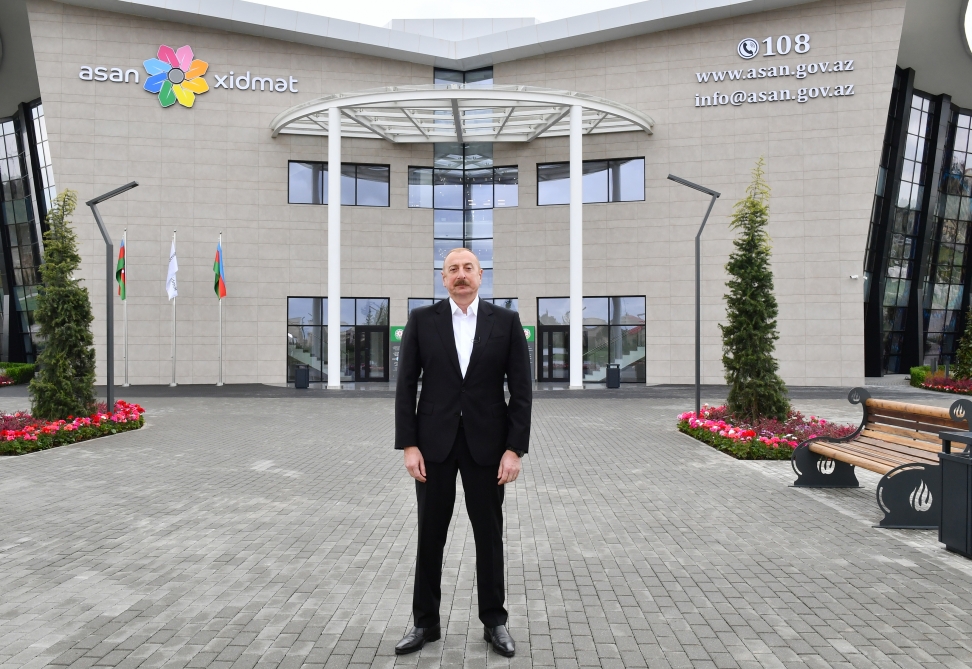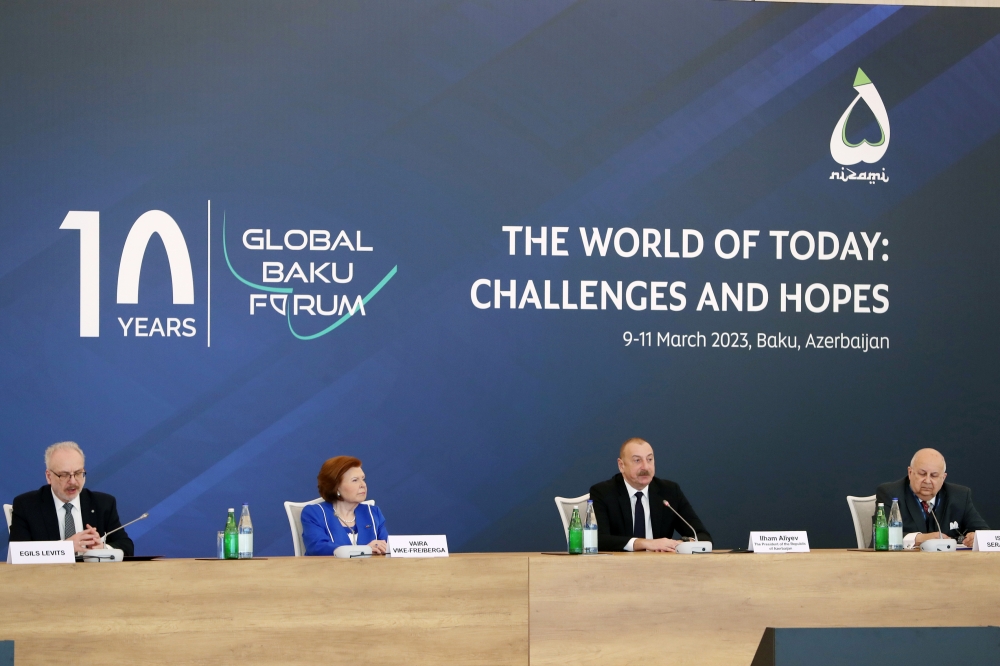"86,600 km² - these figures are familiar to all Azerbaijanis who studied geography in school." Opinion from Baku
Pashinyan’s statement
“The territory of Azerbaijan with an area of 86,600 square kilometers includes Nagorno-Karabakh,” Armenian Prime Minister Nikol Pashinyan stated at a press conference on Monday. This clarification of the previous statement of the Armenian prime minister caused a huge resonance in the societies of both countries. But political observer Haji Namazov does not understand such a violent reaction. “The entry of Karabakh, in particular the territory where Russian peacekeepers are temporarily stationed, into the country was not in doubt after the first mention in the agreement reached in Brussels,” he says.
- Georgian Dream cannot make decisions on its own – Director of Rondel Foundation
- Attempted kidnapping of the Prime Minister of Armenia’s son: Human rights defenders’ comments
- Lavrov-Bayramov-Mirzoyan negotiations in Moscow – opinion from Baku
What happened?
On May 14, during the fifth meeting of the Prime Minister of Armenia and the President of Azerbaijan, mediated by the President of the European Council Charles Michel in Brussels, the parties again recognized each other’s territorial integrity, where Azerbaijan is designated as 86,600 km². This means recognition of the territory of Azerbaijan, including the territory of the former NKAR within its composition.
On May 22, at a press conference, Pashinyan said that the country recognizes the territorial integrity of Azerbaijan.
At the same time, he believes that “the issues of the rights and security of the Armenians of Nagorno-Karabakh should be discussed between Stepanakert and Baku, and international guarantees are needed,” without which the population of Nagorno-Karabakh could be subjected to “ethnic cleansing.”
The prime minister was reminded that by the decision of the Supreme Council of Armenia, it has no right to sign a document recognizing Nagorno-Karabakh as part of Azerbaijan, and later the Constitution of Armenia was drawn up on the basis of this decision.
To this Pashinyan stated that in 1989 the Supreme Council of Armenia and the Regional Council of Nagorno-Karabakh decided to reunite Armenia and Nagorno-Karabakh. In 1990 Armenia adopted a declaration of independence, referring, among other things, to the above-mentioned decision.
Further, in 1991, Nagorno-Karabakh declared its independence. The question arises – independence from whom? If from Armenia, then isn’t this a violation of the aforementioned joint decision? If violated, why are the perpetrators not held accountable? If independence was declared from Azerbaijan, doesn’t this violate the joint decision of the Supreme Council and the Regional Council? After all, if Nagorno-Karabakh was reunited with Armenia, then from whom does Nagorno-Karabakh become independent now?
In 1998 a change of power took place in Armenia and Yerevan ousted Nagorno-Karabakh from the negotiation process, after which the principle of a “common state” was taken as the basis for negotiations. This established that Nagorno-Karabakh is an association of a certain type within Azerbaijan.
Then the Madrid Principles of Settlement were adopted, which talked about resolving the status of Nagorno-Karabakh together with Azerbaijan through a future referendum.
The future referendum was to be coordinated with Armenia and Azerbaijan. The question is, what does Azerbaijan have to do with it, if Nagorno-Karabakh has already declared its independence?
“If Nagorno-Karabakh itself is not negotiating, then the issue automatically turns into a territorial conflict,” the prime minister said.
Expert opinion
Political commentator Haji Namazov commented to JAMNews on Nikol Pashinyan’s statement and the reaction it provoked:
“Nikol Pashinyan today repeated his recent statement that Armenia recognizes the territorial integrity of Azerbaijan within an area of 86,600 square kilometers. These figures are familiar to all Azerbaijanis who at least once opened geography textbooks at school. This is the area of Azerbaijan according to all international laws.
In other words, the entry of Karabakh, in particular the territory where Russian peacekeepers are temporarily stationed, into the country, was not in doubt after the first mention of the agreement reached in Brussels. This was first voiced after the meeting between Aliyev and Pashinyan, the head of the European Council, Charles Michel.”
But Namazov believes that there is one pitfall here:
“The Prime Minister of Armenia recognizes the territorial integrity of Azerbaijan, but immediately notes that the Karabakh issue should be resolved between Baku and Khankendi, and even through the mediation of international forces.
In other words, he makes it clear in diplomatic language that Yerevan does not renounce the principle of self-determination, on which the Armenians living in Karabakh are based. Only now Armenia is allegedly no longer a party to the Karabakh conflict. “Go and resolve your conflicts yourself,” in plain language,” he said.
According to the political observer, several questions arise here at once, given that Armenia recognizes Nagorno-Karabakh as part of Azerbaijan:
“Will Armenia stop funding the illegal regime? According to international practice, a country cannot finance part of another country without the knowledge and permission of the central authorities of that country. Suppose, even with all the will, Azerbaijan cannot finance the authorities of the Azerbaijani provinces of Iran without the knowledge of Tehran. This is gross interference in the internal affairs of the state.
Will the delivery of goods and medicines from Armenia to Khankendi stop? If Yerevan recognizes the sovereignty of Azerbaijan over this part of Karabakh, then it must understand that the provision of everything necessary for this part of Azerbaijan must be carried out from Baku. These are basic truths that everyone understands. In terms of medical care, the process has already begun. Baku reportedly called on the Red Cross to stop assistance to Karabakh Armenians through the organization’s Armenian office. Since there is an Azerbaijani office that can uninterruptedly perform all these tasks. After all, this is how it should be by all laws.
Providing electricity and gas from Armenia. Azerbaijan has already adopted a program at the state level, according to which, until 2025, Khankendi will be provided with electricity and natural gas from the country’s general network. Of course, there are many facts in the world when a country provides electricity to a part of a neighboring country if it is profitable for both. But there are bound to be interstate agreements. So far, there are none, and part of Karabakh is provided with electricity and natural gas from Armenia illegally.”
Namazov noted that the highlighted points cannot surprise anyone in the world. Since everywhere and in all countries it is the same. “These are the elementary components of the sovereignty of countries,” he asserts.
“So, then, how much will the Lachin corridor be in demand? It will simply turn into a road linking two countries, for example, Azerbaijan and Georgia. And no checkpoint at the border should be surprising.
The only question that remains is the presence of peacekeepers in the region. They, if you think sensibly, should be there until such time as the representatives of the two peoples will not trust each other. Although it would be desirable to see there not Russian troops, but someone else. It is obvious to everyone that Russia has its own interests in the region, and the Kremlin will not agree to peace so easily, so as not to lose leverage on these two South Caucasian countries.
And what about the illegal regime in Karabakh? If Armenia seriously stops interfering in the affairs of a neighboring country, the sovereignty and territorial integrity, which it recognized with its own hand, does not finance them, then the self-proclaimed “republic” has absolutely nothing to hope for. Everything is clear here without any analysis.”





















